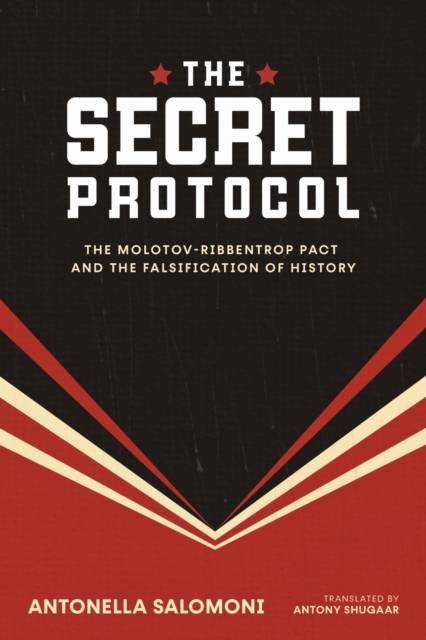
- Afhalen na 1 uur in een winkel met voorraad
- Gratis thuislevering in België vanaf € 30
- Ruim aanbod met 7 miljoen producten
- Afhalen na 1 uur in een winkel met voorraad
- Gratis thuislevering in België vanaf € 30
- Ruim aanbod met 7 miljoen producten
Zoeken
The Secret Protocol
The Molotov-Ribbentrop Pact and the Falsification of History
Antonella Salomoni
Hardcover | Engels
€ 86,45
+ 172 punten
Omschrijving
In 1939, the Soviet Union and Germany agreed to a nonaggression treaty named for its signatories, foreign ministers Vyacheslav Molotov and Joachim von Ribbentrop. Kept hidden from the public was an addendum to the Molotov-Ribbentrop Pact, a "secret protocol" whose existence was denied by the Soviet Union until 1992. It defined new borders for German and Soviet spheres of influence, effectively preparing for the partition of Poland, the Baltic states, and Bessarabia. Shortly after signing on August 23, 1939, both the USSR and Nazi Germany invaded Poland. In this volume, Antonella Salomoni scrutinizes this consequential document and its afterlives, focusing predominantly on the discourse that surrounded it. From the moment of the secret protocol's inception--and the near-instantaneous rumors of its existence--it generated friction and competing narratives. The document became public during the Nuremberg trials, but the USSR declared it a fabrication evidencing the West's willingness to falsify history. It continues to be relevant to the reconfiguration of history currently advanced by Vladimir Putin. By centering the rumors, accusations, and propaganda the pact precipitated, Salomoni illuminates how political actors can use and abuse history, how they create and disseminate truths and falsehoods, and how they can blur the boundary between facts and fictions even in the glaring face of black-and-white documentation.
Specificaties
Betrokkenen
- Auteur(s):
- Vertaler(s):
- Uitgeverij:
Inhoud
- Aantal bladzijden:
- 240
- Taal:
- Engels
Eigenschappen
- Productcode (EAN):
- 9780299354909
- Verschijningsdatum:
- 06/01/2026
- Uitvoering:
- Hardcover
- Formaat:
- Genaaid
- Afmetingen:
- 152 mm x 229 mm
- Gewicht:
- 453 g

Alleen bij Standaard Boekhandel
+ 172 punten op je klantenkaart van Standaard Boekhandel
Beoordelingen
We publiceren alleen reviews die voldoen aan de voorwaarden voor reviews. Bekijk onze voorwaarden voor reviews.







